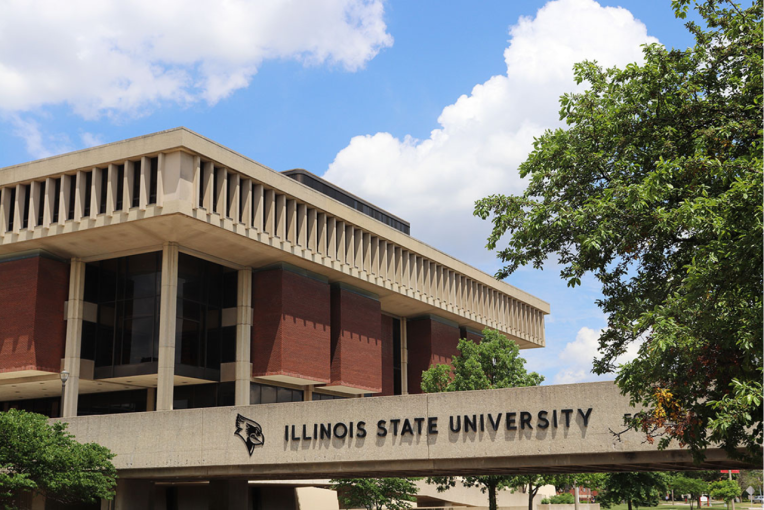The Digital Scholarship Lab at Milner Library will hold its first series of digital humanities and digital scholarship workshops in Milner Library, room 165. The Digital Scholarship Lab is optimized with high-end equipment that supports a wide range of digital tools, methods, and uses. Topics will range from representing texts in digital forms using the Text Encoding Initiative (TEI) to using data analysis and visualization tools to curating digital collections and exhibits using the Omeka platform.
Attend one workshop that piques your interest, or join us throughout the semester to learn about different digital tools and techniques that can be employed for both scholarly uses and classroom teaching.
Registration is required for each workshop. Workshops are eligible for a professional development credit through the Center for Integrated Professional Development.
Upcoming Workshops
Understanding the Text Encoding Initiative (TEI) and Its Uses in the Digital Humanities
Wednesday, March 20 • 10 to 11:30 a.m.
Milner Library, room 165 (Digital Scholarship Lab)
Synchronous session
Facilitator:
Katherine Ellison, Ph.D., Department of English
How do you digitize a document so that not only its text, but its cultural and composition history, can be accessible to future generations? How do you create a digital record that can survive decades, even centuries, of technological change that you cannot predict? The Text Encoding Initiative (TEI) was created in the late 1990s by humanists concerned with the limitations of superficial, always-changing mark-up languages of the early internet, like HTML. This workshop explains the goals and mark-up structure of TEI in the encoding of documents, particularly ones with complex contexts that you may want to preserve along with the text itself. Registration is required.
Introduction to Oxygen XML Editor
Wednesday, March 20 • 1:30 to 3:30 p.m.
Milner Library 165 (Digital Scholarship Lab)
Synchronous session
Facilitators:
Angela Yon, Milner Library
Emily Baldoni, Milner Library
The first step in starting a digital scholarship project is selecting a tool with an approachable insight into data. Oxygen XML Editor is a popular tool that provides a simple way to create, edit, and publish XML files. This workshop will offer an overview of Oxygen XML Editor and provide effective practices when editing XML documents. The session will present a hands-on opportunity to become comfortable when working in XML as a structured data format and learn basic rules and standards. Registration is required.
Data Analysis & Visualization Tools, Part 1
Friday, April 5 • 10 to 11:30 a.m.
Milner Library 165 (Digital Scholarship Lab)
Synchronous session
Facilitators:
Yashaswini Mekala, Information Technology
Shinjon Ghosh, Mathematics
Rebecca Fitzsimmons, Milner Library
Rachel Scott, Milner Library
This introductory workshop provides a foundation for understanding data analysis through visualization. Participants will learn some of the basics for working with data, including where to find existing data sets and how to clean data. Presenters will explain uses for data visualization as a communication tool and outline the uses of different types of charts, graphs, and other visualizations. Examples of appropriate use cases leveraging both PowerBI and Python will be highlighted. Attend one or both sessions to learn about various methods and tools for working with data. Registration is required.
Data Analysis & Visualization Tools, Part 2
Friday, April 5 • 1 to 2:30 p.m.
Milner Library, room 165 (Digital Scholarship Lab)
Synchronous session
Facilitators:
Yashaswini Mekala, Information Technology
Shinjon Ghosh, Mathematics
Rebecca Fitzsimmons, Milner Library
Rachel Scott, Milner Library
In the second workshop, presenters will walk participants through the creation and modification of a very basic dashboard in Power BI. Power BI is an interactive data visualization software that the University makes available to all students and personnel. Presenters will also walk through a simple data visualization example using Python. All data and code will be provided, but participants are welcome to bring data of interest to them. Participants are encouraged but not required to attend the workshop, Data Analysis & Visualization Tools, Part 1. Registration is required.
About the Digital Scholarship Lab
The lab features 11 Dell Precision 3650 Workstations with the following specifications: Intel Core i9-11900K 8-core, 16 thread, 3.5 to 5.3GHZ CPU, 64GB DDR4 RAM, NVIDIA RTX A4500 w/ 20GB GDDR6 VRAM, and 2TB PCIe NVME SSD. Specialized equipment includes two Epson 12000XL Graphic Arts Flatbed Scanners and two Meta Quest Pro’s with 256GB Storage. In addition to software available across campus, the lab machines also have Zoomtext Fusion 2023, ABBYY FineReader, and OxygenXML, among others. Please visit the Digital Scholarship Guide to explore related offers and opportunities.
For questions about the workshop series or if your scholarship would benefit from data analysis, data visualization, data mining, digital exhibits, or other digital scholarship approaches, please contact Rachel Scott at rescot2@IllinoisState.edu or Rebecca Fitzsimmons at rlfitzs@IllinoisState.edu.

